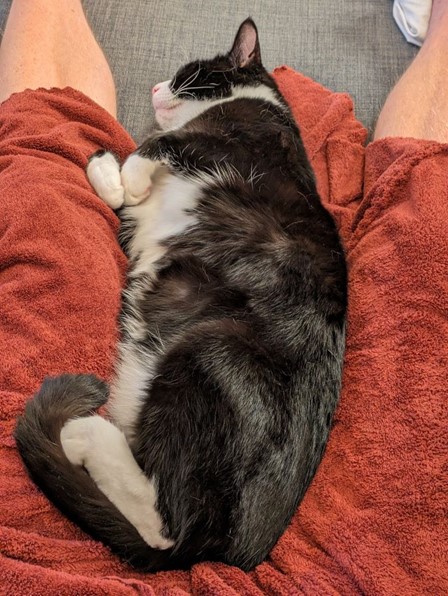
This morning I woke up to the usual: Benny begging for breakfast like he’s never been fed before. And as usual, I sat on the floor to give and receive some pre-breakfast affection from the cat. After a few pets, though, Benny got impatient and bit my hand (not hard but not pleasant either). 15 minutes later, he’s in my lap on the couch getting a chin scratch and purring away.

Now, I could have gotten upset for him for biting me. I could have held a grudge. But what good would that have done me? What good would that have done anyone?
Instead, I immediately forgave him and moved on, which left open the opportunity for us to cuddle in peace a short time later.
This is easier to do with a pet than with a person, but the logic of immediate forgiveness is the same.
Your friend does something inconsiderate. Your kid forgets their chores. Your partner says something unkind. A stranger cuts you off in traffic.
You’ll forgive them eventually. Why not now? Why not immediately? What’s the point of being mad? If you think back on your life, on all of the times you lost your temper, I think you’ll see that anger has never served you.
Now let’s be clear: forgiveness doesn’t mean there aren’t natural consequences for the behavior. It just means you’re not upset. After Benny nipped my hand, I didn’t reward that behavior by feeding him right away. I firmly said, “No,” got up, and took care of my needs for a few minutes. Then I fed him.
When someone wrongs you, you should let them know. You should correct the behavior and explain why it bothered you. But there’s no reason to stay upset beyond your initial automatic reaction. See how quickly you can forgive them, and enjoy how much better that feels.
